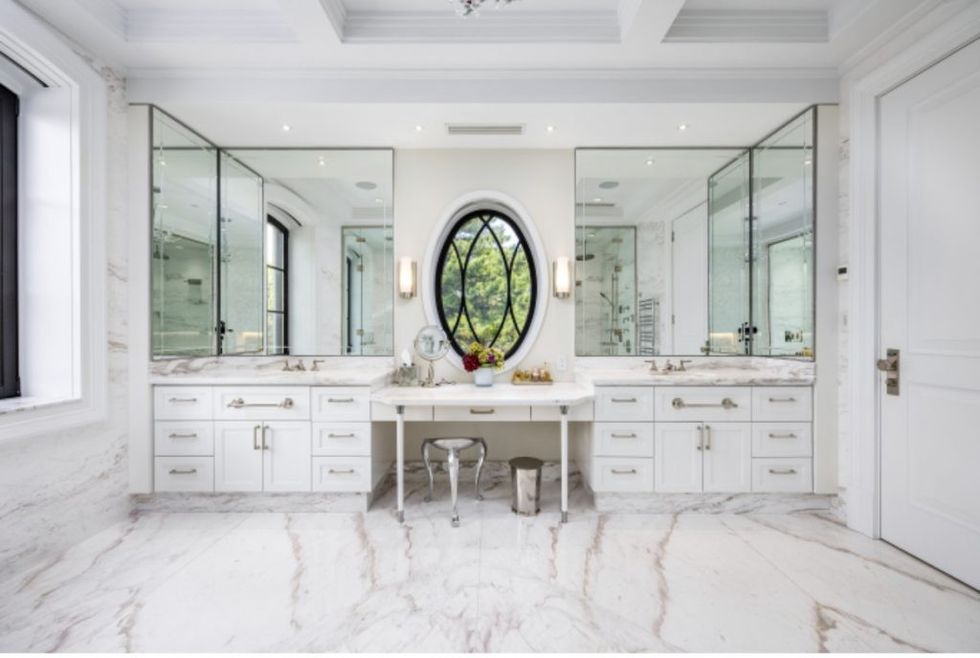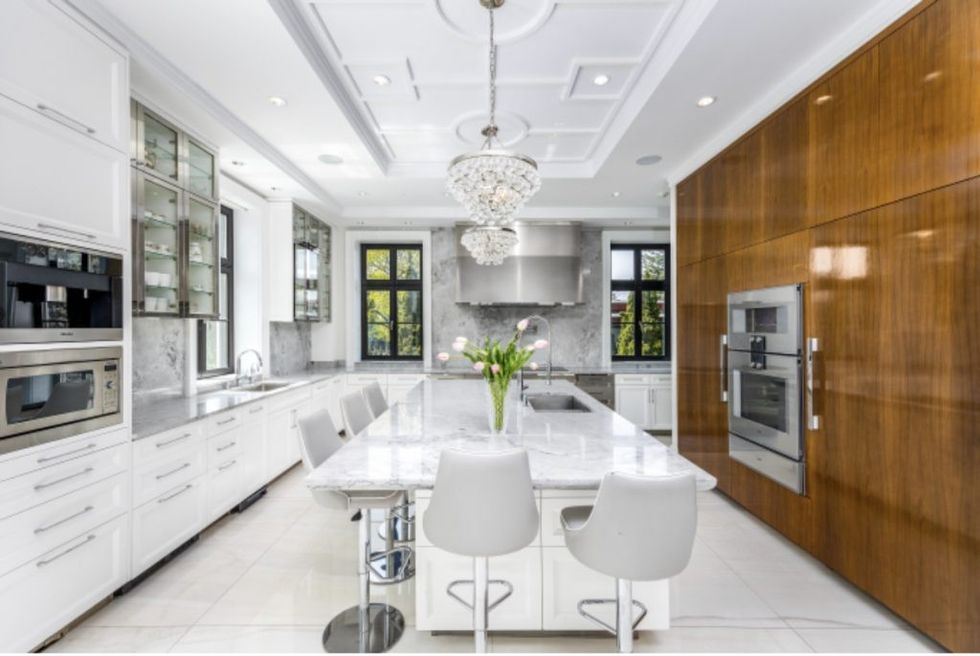While most of the housing market has seen price drops and a slump in sales, there is one niche market that is on fire.
That’s the super luxury housing for the high-net-worth individuals who don’t care about interest rate hikes or mortgage payments. For that segment -- and it’s largely the international buyer -- there’s simply not enough inventory to meet the demand coming from this new category of purchaser.
“They are people worth upwards of hundreds of millions of dollars. Some of them are multi billionaires,” says Liza Kaufman, a Montreal realtor who’s been in the business for 18 years. Kaufman brought Sotheby’s to Quebec so that she could target the luxury purchaser, and in the last three years she’s seen a significant increase in that segment’s purchasing power. It’s gone next level.
“The market was a unified force when I first started. Things went up together; things went down together. I’ve noticed a real change in the last three years.”
This year she sold a Westmount house in Montreal, that was privately listed, for close to $25 million. And she’s in the midst of working out a deal for a house at 1475 Pine Ave. West, that’s listed at $35 million. She’s received multiple offers.
“We used to pretty much know who (and where) the players in the super high end were in our market when I started in real estate, and in the last two or three years especially there’s been a whole new crop of people that were not on our radar who have huge financial capacity to purchase,” says Kaufman.

“I think it has a lot to do with the COVID economy. These are not just people who work in Montreal or Canada, but these are people who have businesses all over the world. The wealth has grown everywhere, and they are definitely out there, and they are definitely here to stay. And the financial fluctuations in the world that are happening in the past six or 12 months are not affecting them at the base level, which for them is being able to purchase the one, two, or three homes of their choice.”
It’s a good time to be a seller of luxury housing, says Ms. Kaufman. This new group of wealthy buyer doesn’t flinch at having to pay $5 million more for a house if it’s what they want, she says. Most of them own several homes in other countries. She just got back from Los Angeles, where she’s selling a home, but she’ll fly around the world to meet with her clients, part of the job when dealing with international clientele.
“Last week I had a wealthy American in town. But we have clients from Geneva, Luxembourg, Paris, South America. Before we had very few Chinese buyers, and after we opened the consulate here, it opened the floodgates, although they’ve slowed lately.”
READ: These are the 10 Most Expensive Properties in Toronto Right Now
There are differences when selling to the global billionaire type. Sometimes she never meets the buyer and only deals with a representative from the buyer’s family office. Some come from several generations of wealth; others are “newly minted billionaires.” In order to even view a super high-end home, she requires the buyer provide proof of funds in the form of a letter from a private banker attesting to the buyer’s wealth. That helps weed out anyone who tries to misrepresent themselves, and it does happen, she says.
The ultra-wealthy buyer’s fondness for Canada is a matter of security -- personal, political, and environmental -- says Kaufman.
“What we are discovering is that with the instability that is starting to happen in Europe again, after Brexit, and with political instability in America, a lot of my wealthy people want a safe haven – not necessarily just for money. We have a lot of very good learning institutions, and they feel if things really go down somewhere where they are currently living, such as London, New York, Los Angeles, Miami, they are safe [here].”
Climate change has made coastal cities more vulnerable, which in turn has made Quebec more of a haven. It has an abundance of water, and water scarcity has become a concern for Americans and other foreign buyers.

“What is of consideration to these people is safety both for their families and for their money. We are a very stable society, comparatively speaking to the rest of the world right now, with a very strong democracy… And if you study [climate change] you’ll see that Quebec will be one of the safest places to be globally.”
BakerWest founder and chief executive officer Jacky Chan sells housing in Vancouver and Toronto, with a focus on presales. He concurs that the luxury market for part-time, pied-à-terre style housing is on the upward swing while the rest of the market drops.
“Overall, the user-base market has been slowing down [as they’ve been] affected by the interest rate, but this is a completely different type of purchase,” says Chan. “People need to reallocate their wealth, and they will find places, across the board, not just [in] Canada. We see this in New York, Los Angeles, Miami, San Francisco.”
That’s because the wealthy buyer who is immune to cyclical markets is motivated by the current downturn. Chan agrees that the political turmoil in the world and the recent uncertainty of the tech sector, the stock market, and cryptocurrency market make the high-net-worth buyer seek safe havens in the form of real estate.
“The people in that category wait for times like this, when nobody is buying. When the ability of regular purchasers diminishes to the lowest point where no one has money or the borrowing power to buy, that’s when you get the best deal, and also the best products. The really experienced players, the opportunists, they are ready to eat. This is when they feast.”
In other words, Canadians can expect the inflow of foreign wealth to continue to find its way into the housing markets in some form, predominantly from Asia where there’s political volatility, says Chan.
“In the past two years... security investments in Asia have not performed well as a whole. Anything you put into securities has experienced huge losses. In some places it’s not uncommon to see 50% losses. And cryptocurrency you see 95% losses over a couple of months. So a lot of wealth has evaporated.
“A friend was tasked to put together 10 private equity funds, and the minimum size of each fund is $10 billion US, to set up in the last couple months. His only mandate is to diversify the assets globally, and to not lose money.”





















